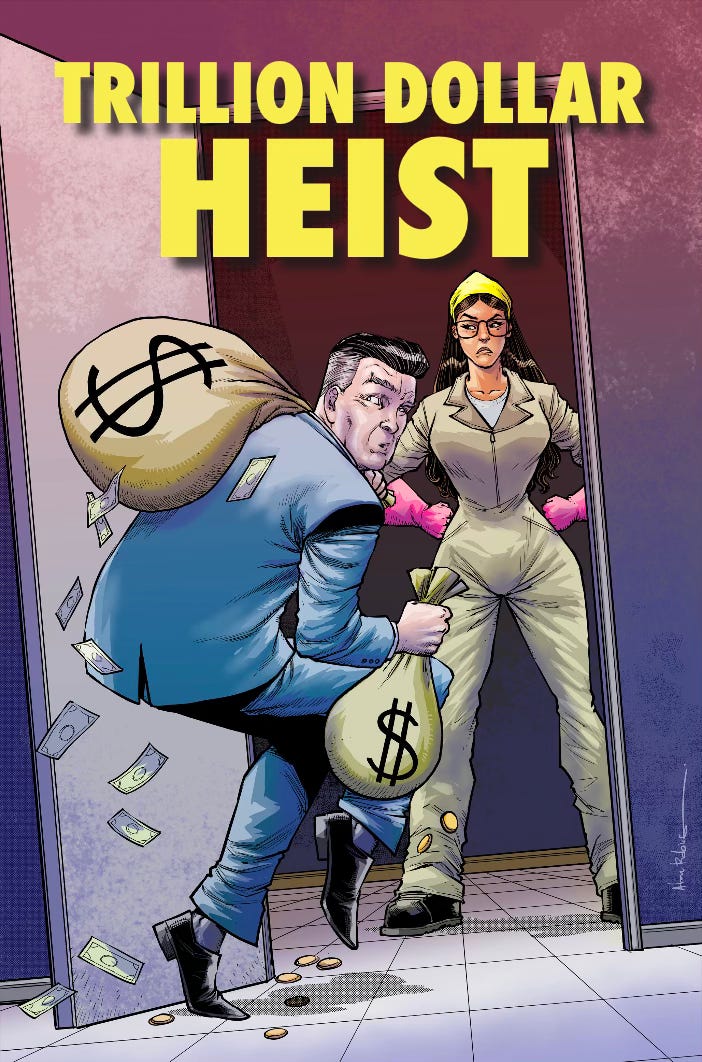Friends,
One of the most interesting and fun parts of the job here at Civic Ventures is that we continually challenge ourselves to become better economic communicators. For decades, progressives presented economic conversations in a punitive, “eat-your-vegetables” framing that has repeatedly lost to the (false) trickle-down claims that keeping wages low, slashing taxes for the powerful, and deregulating giant corporations will eventually result in economic growth for everyone.
While trickle-downers promised that the good times would eventually spread from the very top to everyone else, Presidents Clinton and Obama continually framed regulations as a necessary evil that must be pursued in moderation, and they argued that the minimum wage must be raised in teeny increments every few years in an effort to be “fair” but not too much because “we don’t want to harm the very people we are trying to help.”
All that began to change ten years ago with the Fight for $15 and the dawn of middle-out economics, when we realized how the economy really works: When more people have more money, that works out better for everyone. Suddenly, after years of fighting on the back foot, middle-out economics gave progressives a positive case for economic growth that made more sense for working Americans: If you focus the vast majority of your policies on improving outcomes for working Americans, growing their paychecks and encouraging them to fully participate in their economies, everyone will do better. It’s a compelling case, and unlike the trickle-down argument, it also happens to be true.
But economic messaging takes a lot of time to develop, and progressives have 40 years of disciplined trickle-down talking points to contend with. So the middle-out task of communicating how the economy really works is an ongoing project. We’re always refining our messages to reflect the latest research, and we’re finding different ways to spread the middle-out message to broader audiences.
I’m happy to report that one of our latest projects is a fun and ambitious attempt to bring middle-out economics to a whole new medium—and hopefully a brand-new audience: Comic books.
In his spare time, Civic Ventures fellow Paul Constant has written a number of satirical comic books, including one that was optioned for a potential film adaptation by Paramount Pictures. We challenged him to write the world’s first middle-out comic book.
For the past six months, the whole team at Civic Ventures has been engaged with this project. First, we had to find a subject that we thought would benefit from the unique blend of words and pictures that comics offer. Then, we had to find the best way to explain the issue, and finally, we had to hire a team of comics professionals to bring the story to life. Speaking as someone who spent many hours in my youth reading comics, it’s been a lot of fun to watch the process play out.
The comic is called Trillion Dollar Heist, and it’s a free comic that’s available to read online and download in PDF form right now. It’s about the pernicious practice of corporate stock buybacks, which have transferred tens of trillions of dollars from the pockets of workers to the pockets of CEOs and the elite shareholder class.
Here’s the description of the comic:
A resourceful janitor named Marta steps in to stop a CEO from stealing billions of dollars away from workers and into the coffers of the wealthy shareholder class. Along the way, Marta explains how the richest people in the world have sucked over $70 trillion from the pockets of the American middle class using one weird trick—a trick that was completely illegal until the 1980s.
After Paul wrote the script, we brought on former DC Comics editor Sarah Star Litt, who assembled the rest of the team. Marvel Comics artist Alan Robinson drew the book, Pippa Bowland colored the art, and comics production house Andworld Design lettered the pages. Civic Ventures graphic designer Mary Traverse composed the infographics and logos.
We think this comic is a fun, interesting, accessible way to explain exactly how income inequality has grown so much over the last forty years. It also offers ideas for how to unspool this transfer of wealth, as well as explaining why the economy will work better for everyone when we do get buybacks under control.
The comic does feature a couple saucy words, but not even as many as you’d find in your typical PG-13 movie. We hope you’ll read the book, enjoy it, and then circulate it far and wide—to college students, comics fans, and anyone who cares deeply about making the American economy work for everyone.
Once again, here are those links:
Read online in your browser for free.
We hope to have more comics for you in the future, and we’re always looking for nontraditional ways to share a middle-out message with a broader audience. If you have any ideas, I’d love to hear them—feel free to reply to this email with your thoughts.
We’ll be back next week with a new edition of The Pitch. Take good care this weekend.
Be kind. Stay strong.
Zach







